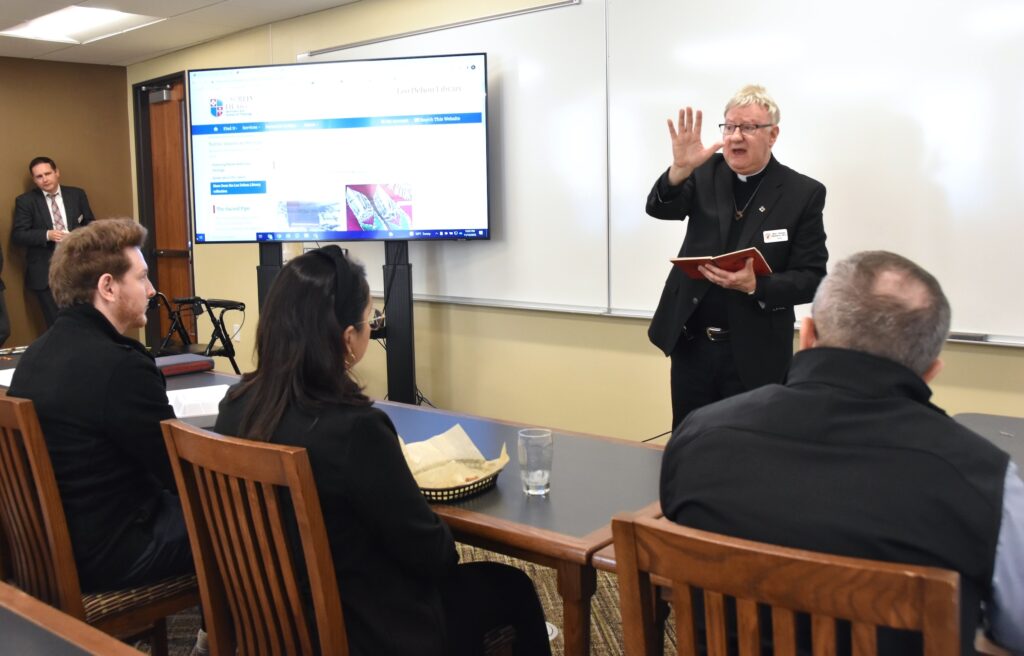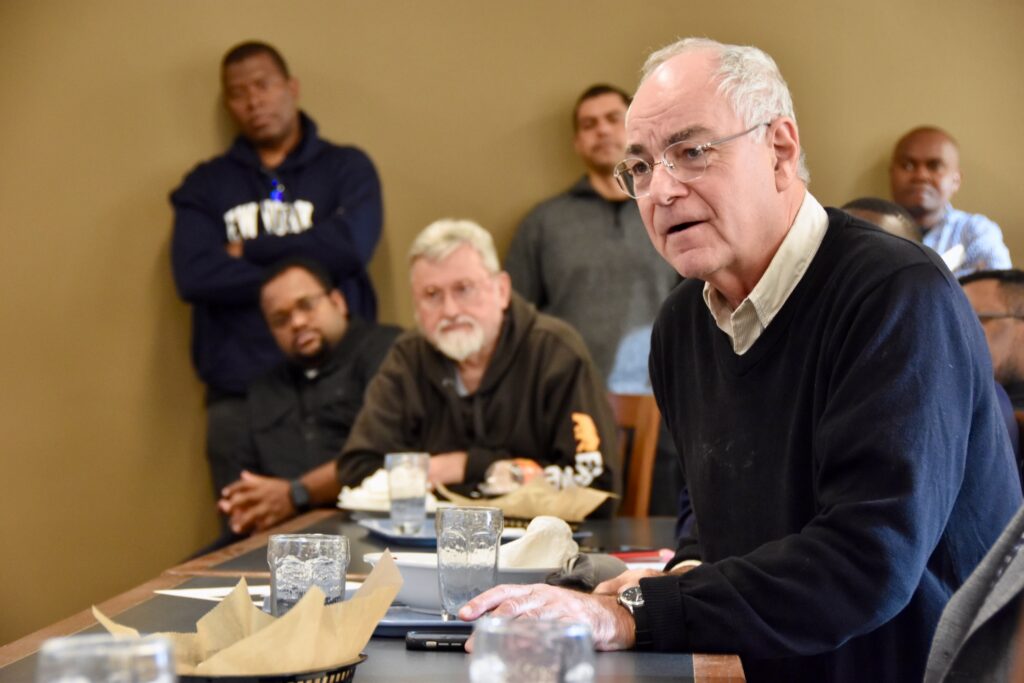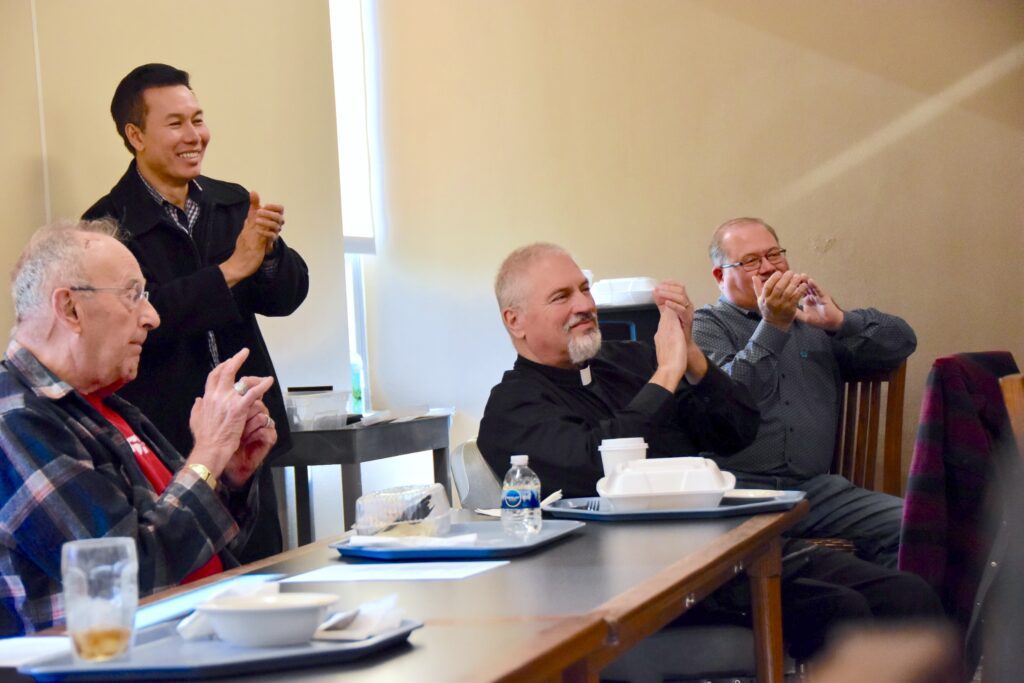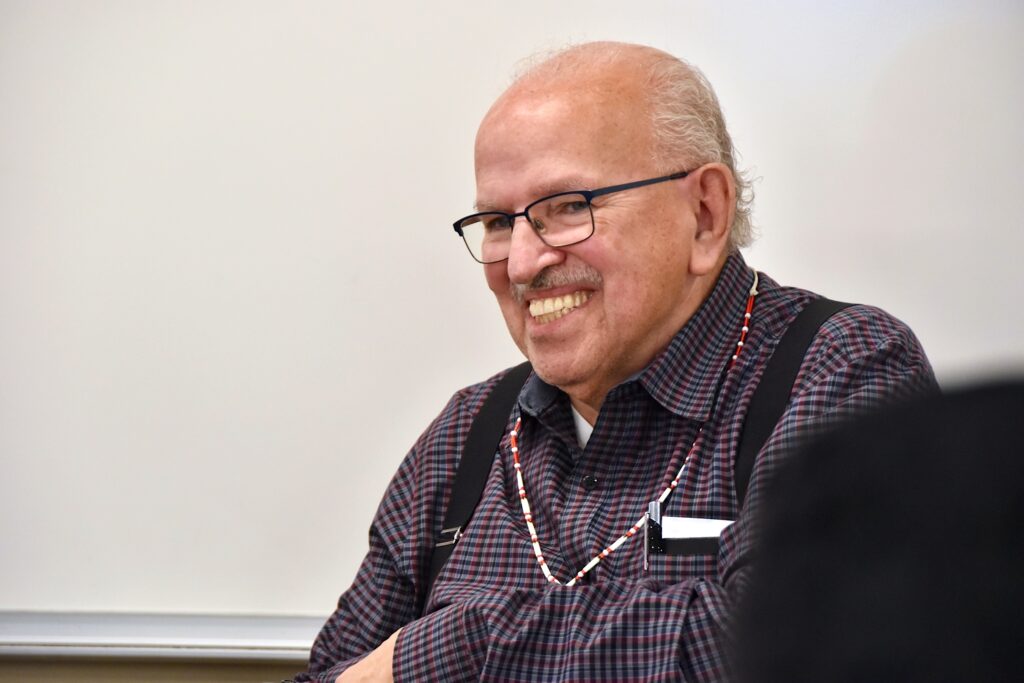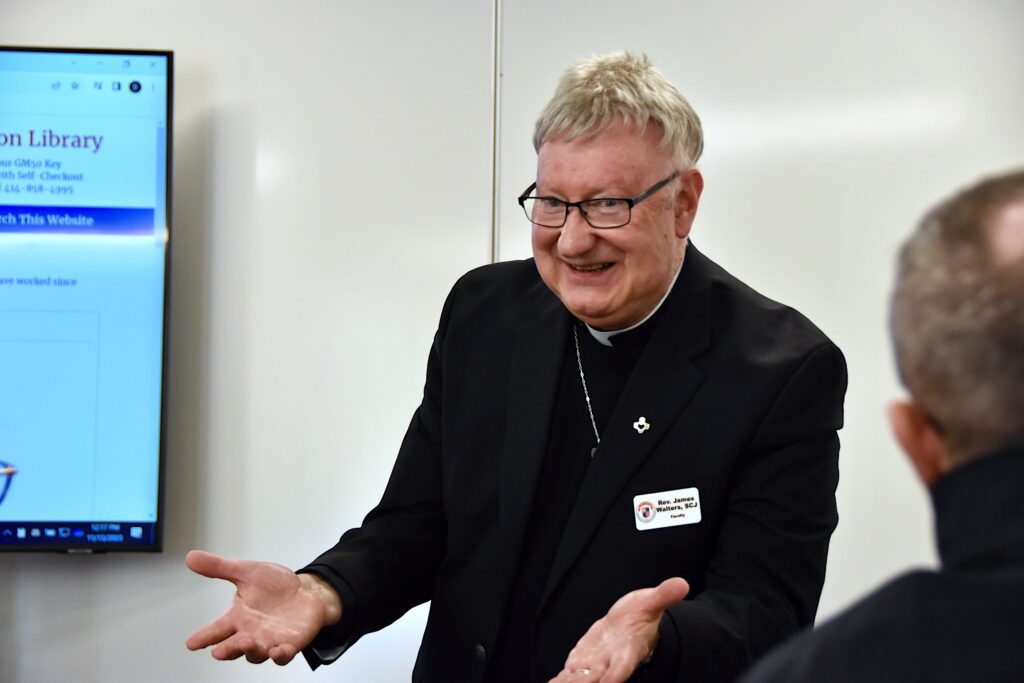“The word for ‘generosity’ in the Lakota language begins with ‘heart.’ Generosity is considered one of the greatest virtues of the Lakota people.”
-Fr. Jim Walters, SCJ
“Our first task in approaching another people, another culture, another religion, is to take off our shoes, for the place we are approaching is holy. Else we may find ourselves treading on [people’s] dreams. More seriously still, we may forget that God was here before our arrival.”
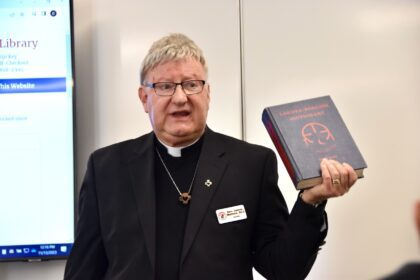
It was with this quote from Rev. Max Warren, an Anglican priest, that Fr. Jim Walters, SCJ, began a presentation on the Lakota people to students and staff at Sacred Heart Seminary and School of Theology on November 13.
In commemoration of Native American Heritage Month, he and Fr. Yvon Sheehy, SCJ, teamed up for a lunchtime talk reflecting on their years of ministry in South Dakota. The session was hosted by the Leo John Dehon Library at SHSST.
Referencing the quote from Rev. Warren, Fr. Jim spoke of his first Sunday Mass at a reservation church. Fr. Jim had studied the Lakota language during his years as chaplain at St. Joseph’s Indian School and decided to open the Mass with a traditional greeting in Lakota.
The words fell flat. After the Mass, he learned why. Until 1978 – for over 100 years – Indigenous people were forbidden by the government to speak their own language.
“And here I was, having the audacity to speak a language which the tribal chairman was forbidden to learn or speak in his own community,” said Fr. Jim.
It quickly taught Fr. Jim to be humble and learn from the people with whom he was to minister.
He spoke of the beauty of the Lakota language, noting that much of its purpose is to communicate with God. “There are no foul words in Lakota, no curse words,” said Fr. Jim. “The worst that you can call someone is a ‘turkey.’ There are no F-bombs in Lakota, no words that would allow you to take God’s name in vain. The relationship with God in the language is both transcendent and immanent.”
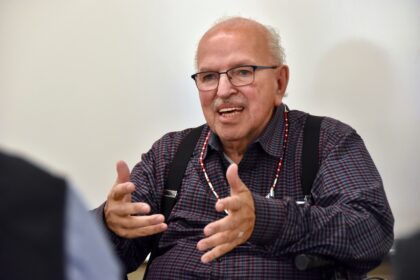
Fr. Yvon talked about the background and history of the Lakota people. He noted that they came from the area now known as the Carolinas. The first native people to domesticate horses, the Lakota moved west and eventually settled in South Dakota. In the summer they lived on the plains and in the winter they retreated to the Black Hills. But as with many indigenous people, they were forcibly removed to the more challenging lands on which the reservations are now located.
In 1972, as a young seminarian doing summer ministry in Cherry Creek, SD, Fr. Yvon learned on a home visit just how challenging reservation life could be. The mother of the household got up, put on her coat and excused herself. “Where are you going?” asked Fr. Yvon, confused. She told him that she was headed to the outhouse. There were 150 homes in the tiny reservation town of Cherry Creek and he soon learned that only four of them had plumbing and electricity. One of the four was the small house that the SCJs lived in next to the church.
“It has certainly changed since then, but it gives you a sense of what life has been like for the Lakota people,” said Fr. Yvon.
The language of the Lakota continues to give insight to their culture. Lakota verbs do not indicate time, there is no tense for past, present and future. “This reflects their relationship of living in the present,” said Fr. Jim. “When God revealed himself to Moses he said, ‘I am,’ a God that is in the present. But we often struggle to live in the present, we are always thinking, ‘What’s next?’ The Lakota people have taught me to better live in the present.”
Fr. Yvon added that it is not only living “in the present” that is important, but also “being present.”
“Don’t make an appointment to see me,” Fr. Yvon remembered a Lakota woman telling him. “I am not going to clean the house for you. Take us as we are.”
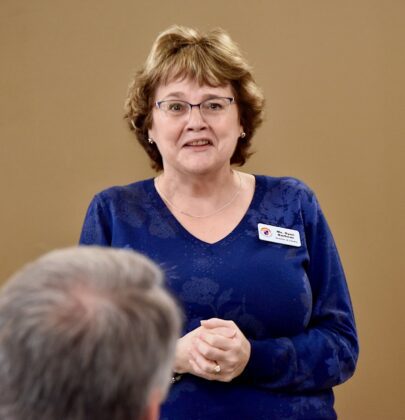
The message: be present to people in the everyday moments of life. People who are remembered well are the ones who have taken the time to be present to others “as they are.”
He and Fr. Yvon both spoke of the generosity of the Lakota people. Again, Fr. Jim shared an example from the Lakota language.
“The word for ‘generosity’ in the Lakota language begins with ‘heart,’” he said. “Generosity is considered one of the greatest virtues of the Lakota people.”
And being a grateful recipient of that generosity is also important. After a wake service or funeral, the SCJ priests were always offered extra food from the meal. “You could say that you would take it home with you for later, but you never said, ‘no thank-you,’” said Fr. Jim. “That would be rude.”
Both SCJs spoke of the integration of Christian and Lakota traditions. When he was bishop of Rapid City, Archbishop Charles Chaput created a liturgical committee to identify indigenous practices that could be incorporated into the Catholic liturgy. One such example is the smudging ceremony, which serves as an act of purification. The Lakota language itself is now an accepted liturgical language.
Before concluding the presentation, Fr. Jim walked participants through the Sign of the Cross and Lord Have Mercy in the Lakota language before giving a final blessing in Lakota.
